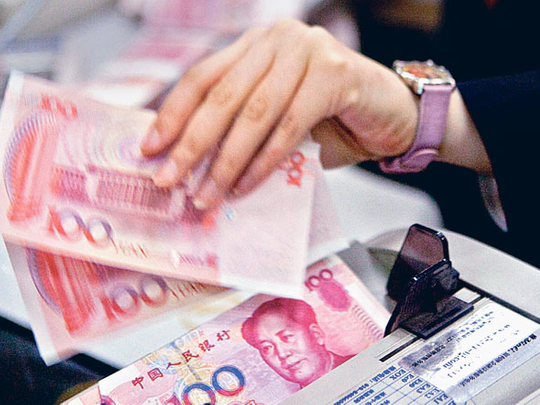
Dubai: A large number of UAE businesses have plans to start doing business using Chinese yuan as the currency of their choice, according to a recent survey by HSBC.
The HSBC Commercial Banking survey showed that 41 per cent of businesses in UAE that currently do not trade in yuan plan to start in the future — the greatest proportion of which plan to start using it in the next 1 to 3 years, a new survey shows.
“The survey results, particularly those of UAE businesses, are certainly reflective of the trend we are seeing amongst our customer base. More and more businesses are recognising how trading in the currency can help them build stronger relationships, mitigate risk as well as benefit them in terms of pricing,” said Ahmad Yeganeh, regional head of International Subsidiary Banking for HSBC MENA.
The future increase is likely tied to the fact that more than half of UAE respondents (55 per cent) see business relationships benefit from yuan adoption, while 86 per cent view competitive pricing as a key driving factor in future usage.
In the 11 country poll, half of the respondents from Singapore, 44 per cent from the US and 42 per cent from the UK said they believe RMB usage brings financial benefits, yet less than a third of their German and Canadian peers share this view.
Overall, 59 per cent of decision-makers surveyed said they plan to increase their cross-border activity with mainland China over the next 12 months, rising to 86 per cent in the UK, 74 per cent in Canada, 73 per cent in the UAE and 63 per cent in France. At the same time, only 22 per cent said their company currently settles business in yuan.
“We very much expect the yuan to become more widely used amongst UAE businesses in the medium term, and strongly encourage those who trade with China but are yet to fully embrace it, to start considering its benefits with a view to adopt – as and when appropriate - in the future,” Yeganeh said.
With its trade in goods passing $4 trillion, China overtook the US to become the world’s largest trading nation in 2013. The IMF’s projections for nominal dollar GDP show that China will add about $850 billion to global demand this year; the equivalent of adding an economy the size of Indonesia to global trade flows.
As China becomes ever more important to international businesses, the internationalisation of the yuan is creating new opportunities in trade, investment, cash management and funding. HSBC forecasts that a third of China’s trade will be settled in RMB by 2015 and that the currency will be fully convertible by 2017.
For its new survey, HSBC polled more than 1,300 decision-makers from mainland China, Hong Kong, Singapore, Taiwan, Australia, Germany, France, Canada, the UK, the US and the UAE who represent companies that conduct international business with or from China.












